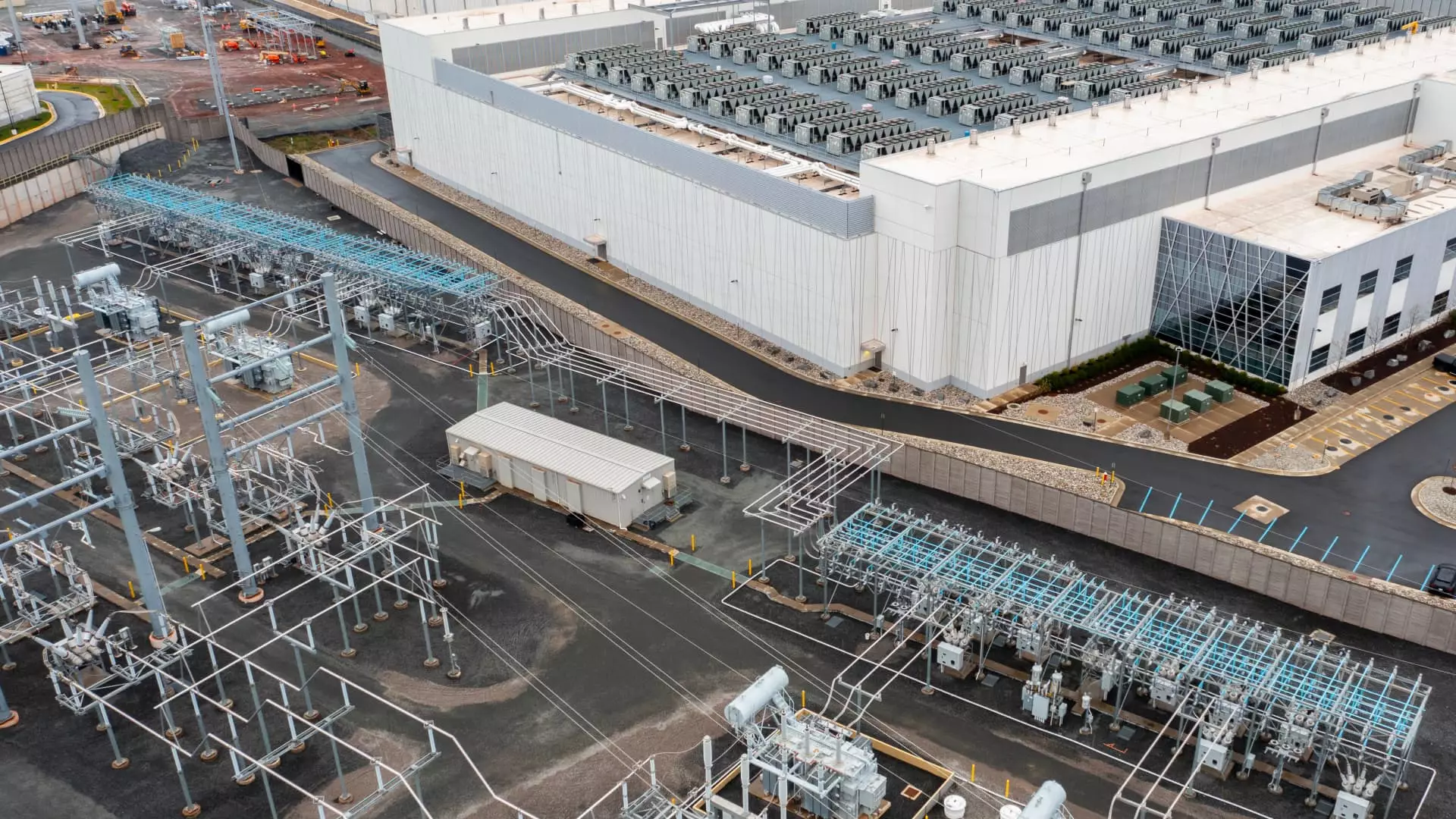The recent rejection by the Federal Energy Regulatory Commission (FERC) of a proposal to expand power supply for an Amazon data center has caused ripples in both the technology and energy sectors. This incident highlights the complexities involved in attempting to harness nuclear energy for the burgeoning demands of artificial intelligence (AI) and cloud computing infrastructures. Talen Energy’s attempt to sell excess energy from the Susquehanna nuclear power plant to Amazon for its data center, initially representing an innovative energy agreement, has now been derailed, showcasing the regulatory hurdles and market dynamics at play.
The FERC denied a request to increase power supply from 300 megawatts to 480 megawatts, thereby stymieing a potentially lucrative and groundbreaking arrangement. Following this announcement, Talen Energy’s stock plummeted by over 5% in premarket trading, clearly indicating the market’s disappointment and apprehension concerning future business opportunities in the energy sector. Other energy companies such as Constellation Energy and Vistra Corp. also experienced significant share drop-offs, demonstrating a broader concern among investors as expectations for similar agreements with tech companies diminished.
Talen Energy’s statement following FERC’s decision underscored the potentially detrimental impact on economic development across several states, including Pennsylvania, Ohio, and New Jersey. By curtailing such energy arrangements, FERC’s ruling could stymie innovation in energy solutions tailored to the tech industry’s exponential growth. The decision not only affects Talen’s immediate future but also raises questions about how regulatory frameworks may need to adapt as technology companies increasingly turn to reliable, clean sources of energy like nuclear power.
Investors had expected that other energy firms, like Constellation and Vistra, would follow Talen’s lead in establishing similar agreements to meet the electricity demands of AI data centers. Instead, the FERC ruling can be interpreted as a cautious approach to energy distribution, aiming to safeguard grid stability and consumer interests, highlighted by Commissioner Mark Christie’s comments on the potential consequences for both reliability and costs.
As AI and data center ecosystems evolve, their demand for energy is rapidly increasing. Traditional energy sources may struggle to keep pace with the insatiable electricity appetite of modern tech applications. This reality has compelled tech firms to explore nuclear energy not solely for its reliability but also for its low carbon footprint. In an era of heightened environmental consciousness, where fossil fuels are increasingly being scrutinized, nuclear power presents a formidable solution.
For example, while the FERC decision impacts Talen’s deal with Amazon, it does not affect Constellation’s plans to revive the Three Mile Island plant for a different arrangement with Microsoft. This indicates a future where energy providers may attempt to strike their own deals, integrating traditional energy methods with the burgeoning needs of tech enterprises.
Despite the challenges posed by FERC’s ruling, the relationship between tech companies and energy producers should not be dismissed. The increasing performance of companies like Vistra and Constellation reflects investor confidence in the potential of nuclear energy to meet the electric demands of the tech sector. With Vistra’s stock tripling in value and Constellation more than doubling, the market continues to view nuclear energy as a viable and essential avenue for the future of electricity generation.
The demand for clean energy solutions from tech firms is only expected to escalate. Companies are under increasing pressure to meet sustainable goals, while energy providers are poised to capitalize on this shift. The FERC’s recent decision, albeit a setback, strikingly illustrates the intricate balance between regulatory oversight and business innovation, a dance that will undoubtedly define the energy landscape in the coming years.
As technology companies grapple with regulatory frameworks and explore strategic partnerships in the nuclear energy field, the industry awaits further developments. The unfolding narrative between energy providers and tech firms will be crucial in shaping the future of sustainable energy consumption, especially as AI capabilities expand and evolve.

Leave a Reply